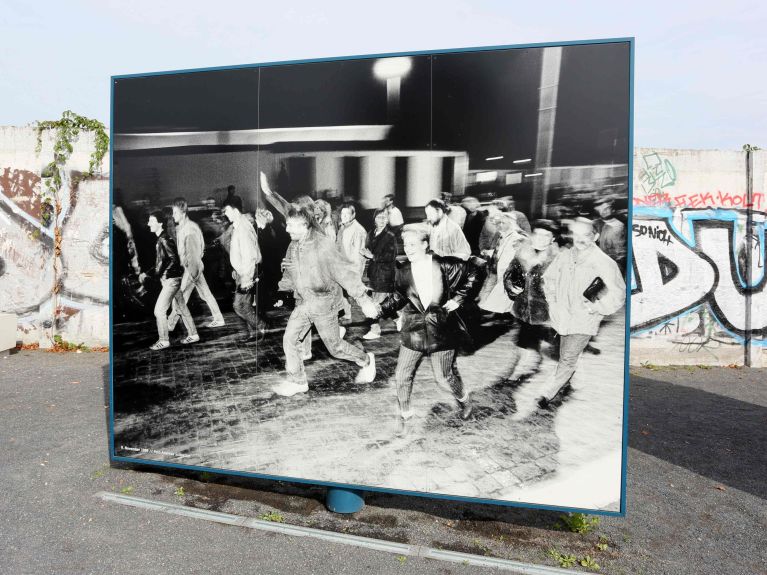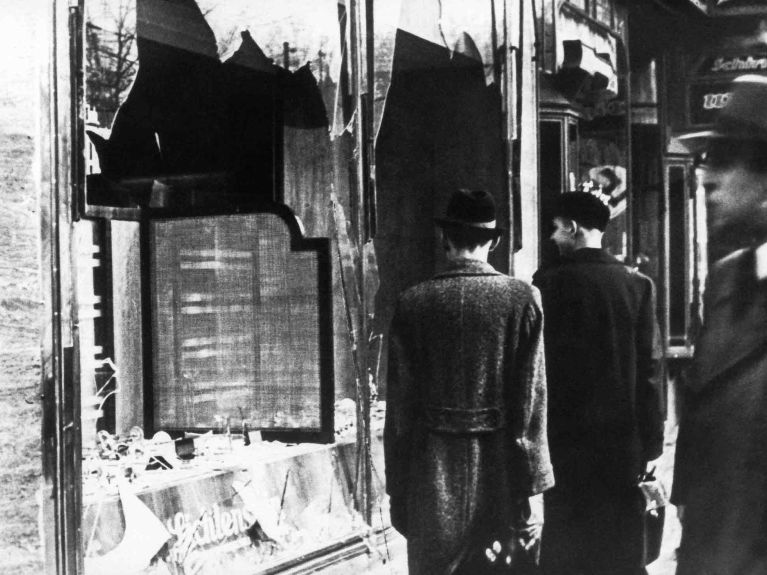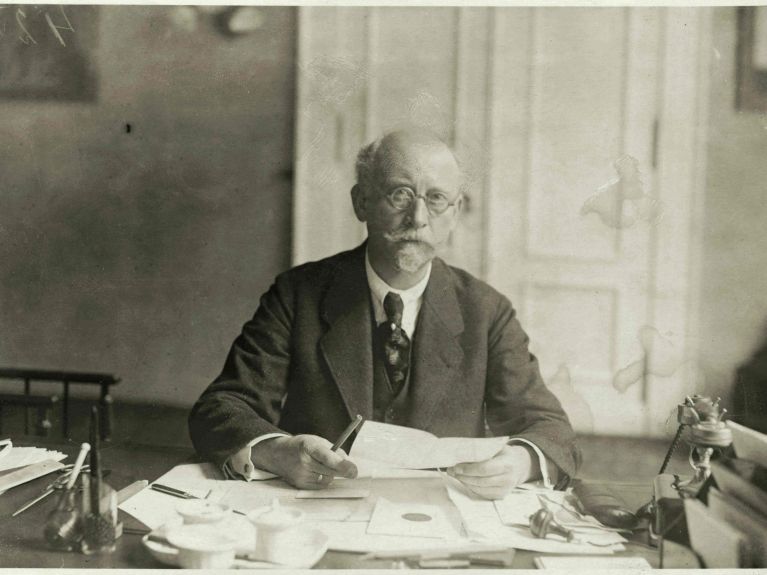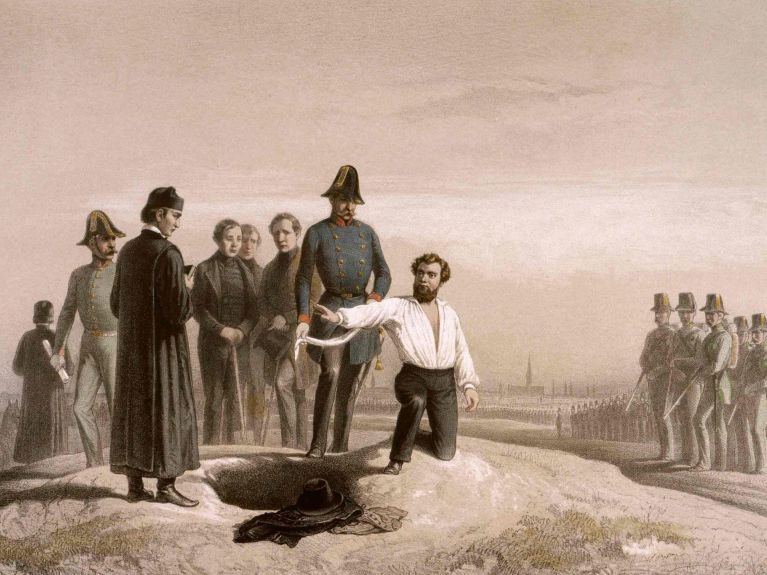November 9th – Day of remembrance in Germany
No other date in German history is associated with so many key events – above all Reichspogromnacht in 1938 and the fall of the Berlin Wall in 1989.

November 9th is a crucial date in German history – which is why it is often referred to as the Germans’ “Day of Destiny”. Germany’s national holiday is October 3rd: the official completion of reunification is celebrated on German Unity Day. November 9th is not a public holiday, but a day of remembrance and commemoration. Commemorative events each year focus on the pogrom perpetrated against German Jews on 9 November 1938. But it is also on this day that Germany remembers the fall of the Berlin Wall in 1989, which paved the way for German reunification.
The following events in German history occurred on November 9th:

November 9th 1989 – The fall of the Berlin Wall
This Thursday evening, Günter Schabowski, a member of the GDR Politburo, surprisingly announced new travel regulations for GDR citizens at a press conference. Until then, people in East Germany were only allowed to travel to West Germany with official permission, which was very rarely granted. Even applying for permission would often result in harassment and discrimination. Apparently due to a misunderstanding, Schabowski stated that the new regulation would come into force immediately. The news spread like wildfire, causing thousands and thousands of people to flock to the border crossings, in Berlin in particular. At around 11.30 p.m. the border guards could no longer withstand the pressure of the crowd, and the crossing at Bornholmer Strasse was the first to be opened. One year after the fall of the Berlin Wall, on October 3rd 1990, Germany was officially reunified.

November 9th 1938 – The Night of Broken Glass
The riots against Jews in Germany and Austria, which were encouraged and organised by the National Socialist state, went down in history as the Reichspogromnacht, or “Night of Broken Glass”. Violent acts were perpetrated by members of the Nazi organisations SA and the SS in civilian clothes and uniform, but the latter were joined by numerous regular citizens – estimated at around ten percent of the population. On that Wednesday and in the days before and after, they destroyed and looted some 7,500 Jewish shops and institutions, set fire to 1,200 synagogues and murdered hundreds of Jews. The police and fire brigade were ordered not to intervene. In the days that followed, more than 30,000 Jewish men were taken to concentration camps. According to estimates, up to 2,000 people died as a result of the pogroms. The Reichspogromnacht marked the transition from discrimination of the Jewish population to their open persecution. National Socialist anti-Semitism culminated in the Holocaust – the systematic murder of six million European Jews and other population groups marginalised by the Nazis.
November 9th 1923 – The Hitler-Ludendorff putsch
On this Friday in Munich, Adolf Hitler – who was relatively unknown at the time – made an attempt with his allies to overthrow the democratically elected government. The police ended the coup attempt after a few hours, killing 26 coup plotters and four police officers. Hitler was sentenced to five years in prison, but was released after just a few months for “good behaviour”. As Reich Chancellor and dictator, he declared the day a public holiday ten years later. At a “memorial event” for the failed putsch on 8 November 1939, it was only by chance that Hitler escaped an assassin attempt by resistance fighter Georg Elser.

November 9th 1918 – The proclamation of the Republic
Faced with the certain defeat of the German Reich in the First World War, the Social Democrat Philipp Scheidemann proclaimed the German Republic on this Saturday from a window of the Reichstag building – today the seat of the Bundestag. It was also announced that the German Emperor had abdicated: he fled to the Netherlands and his abdication was officially confirmed on 28 November. A few hours later, Karl Liebknecht proclaimed the “Free Socialist Republic of Germany”. With the country having descended into turmoil similar to civil war, advocates of a pluralistic parliamentary democracy eventually prevailed. The Weimar Republic was founded in August 1919: it was the first democratic state on German soil.

November 9th 1848 – Execution of Robert Blum
The democrat, publicist and poet Robert Blum was executed on this Thursday in Vienna. Blum was a member of the first democratic parliament, the National Assembly in St Paul’s Church, Frankfurt. He travelled to Vienna as head of a delegation from the democratic faction of the National Assembly to support the uprising against the Austrian Emperor. After the uprising was suppressed, he was immediately sentenced to death and shot. His last words were: “I die for the German liberty I fought for. May the fatherland remember me.” Blum is regarded in Germany as a key figure in the history of democracy, while at the same time symbolising the failure of the democratic German revolutions of 1848/49.


